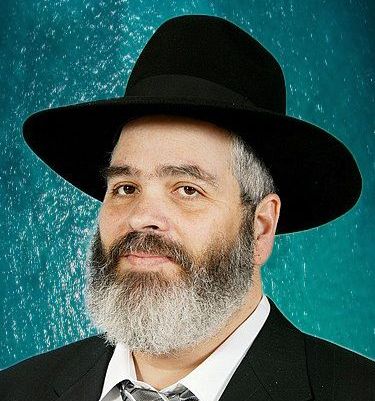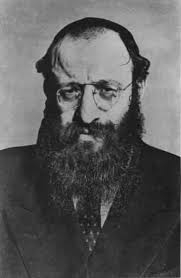  |
|
| |||||
This Google Custom Search looks only in this website. The New Israeli Plan for Kosher Shabbos Electricity is a Win-Win for Everyone
According to the coalition arrangement and the subsequent agreement contracted between the Chairman of the Knesset Finance Committee, MK Rabbi Moshe Gafni and the Israeli Minister of Energy, Yisrael Katz, the government, in its weekly meeting, approved this past Sunday a national storage program to store energy during slack times and release it during peak usage. An incidental benefit is that this will also include providing kosher electricity for chareidi neighborhoods on Shabbos, instead of through the generators being used today. This is without any need to charge more for electric supply to the general public, and in fact, saving a lot of money.
The city of Bnei Brak will be the first pilot project for the whole country for providing stored energy. In a professional meeting which took place in the office of the Minister of Energy, Yisrael Katz together the Chairman of the Finance Committee, MK Rabbi Gafni; the director of the Energy Ministry; the Director of the Electric Company Meir Speigler, and Director of the Bnei Brak municipality, Rabbi Shmuel Litov, it was agreed that Bnei Brak would be the pioneer pilot program. In particular in a new neighborhood located in northern Bnei Brak where a large area would be designated for erecting a special structure provided by the Electric Company store energy.
Predictably, there was a media frenzy accusing the chareidim of raising prices for everyone.
'Nothing but the truth' is not a politician's motto, nor is the Talmudic premise that people don't lie about matters that will eventually come to light a principle of certain people in our times.
This is perhaps because the definition of 'people' has changed drastically in recent generations. The lack of shame is perhaps to blame. Even people who are aware that they are lying, as well as cognizant that they will be revealed to all as liars, does not prevent them from brazenly uttering falsehoods and deceptions, perhaps out of an involuntary reflex or the hope that perhaps, after all, the truth will not emerge.
After such an introduction, we shall relate to the subject which concerned the public this past week, namely the price rise of dairy products. The present Israeli government promised to fight against inflation of the cost of living, and yet, during its tenure, the basic price of dairy products has drastically skyrocketed. A true failure.
<Part 4
This long series of articles was originally published in print in 1994, exactly 29 years ago. It describes the approach and feeling of certain representatives of the Zionist movement during the Holocaust. Sammy Kaufman argues that their behavior was influenced by their political desires to achieve a Jewish state, and their assessment that Jewish sacrifices in the war will make achievement of that goal more likely.
The first part of this series discussed the situation that prevailed in Slovakia at the beginning of the war, as the Germans began to ship Jews off to the death camps. Jews from all groups and backgrounds united against the common danger, forming the Working Group to save Jews. They found that Jewish lives could be bought fairly cheaply and they appealed to Jewish organizations all over for the funds. Some expressed concern about sending money that would aid the enemy. Others had more "ideological" grounds, as we will see in this part.
Writing after the war, Rav Weissmandel recalled the stunning response of Nathan Schwalb, the Zionist representative of the Hechalutz movement, who was sent to Europe to help his fellows. By "fellows" Schwalb only meant Zionists and the Zionist cause, as we will see herein.
In the last installment (part 2), we saw that Nathan Schwalb did not deny writing the letter until 1987, more than twenty-five years after if was first published by Rabbi Weissmandel in his book, Min HaMeitzar. In an interview, he claimed that the letter was a fabrication, and that he had not heard of it until then. He also denied knowledge of the work of earlier researchers on the Holocaust.
Researcher Kaufman contacted the others who worked in the field, and all claimed to have met Schwalb in the course of their work. Kaufman concluded that Schwalb lied to him in the interview. To weigh the plausibility that Rabbi Weissmandel made up the letter or did not accurately remember it, he brings a short biography of and testimonials to Rabbi Weissmandel's memory and intellectual integrity.
* * *
Outstanding Articles From Our Archives
IN-DEPTH FEATURES
by Abba Leib
Before I fall into the sleep which I so badly need, I feel compelled to write down the amazing events of the past day while they are still fresh in my mind. I never want to forget the fact that Benny Weisz saved my life today. And I never want to forget the amazing way in which he did it.
I guess I'll start at the train station, because that's the place where our troubles really began.
We were on our way to buy our tickets. Benny had just handed me his share of the money, which I had folded into my brown leather wallet and safely tucked away in the inner pocket of my jacket.
Benny was to my right. We were discussing plans for the remainder of the summer vacation when, in that thoughtless surprise that comes with a sudden and unexpected event, I found myself being pushed violently backwards. Lying flat on my back, staring dumbly into the bright fluorescent tubes of the train station ceiling, I heard whomever it was who had bumped into me mumbling something like an apology.
"No harm done," I replied, finding everything thankfully intact. But as I rose to my feet and replaced my fallen glasses, I saw that the stranger had already disappeared. That's weird, I thought. Then, in that same instant of dawning awareness, panic welled up in my chest. My hand instinctively flew to my wallet.
Gone!
Opinion & Comment
by Rabbi Daniel Yaakov Travis
Equal Before Hashem
Sam is an enterprising businessman, who heads one of the biggest corporations in America. Whoever meets him is immediately taken by his charm and grace, and drawn to be his friend. Everybody sees Sam as Mr. Success Story.
Yonni on the other hand seems to have the opposite fortune. He has no success in business, and almost every venture he enters seems destined to fail. Yonni is not charismatic, and has very few acquaintances. No one envies Yonni.
While in the eyes of man Sam is a success and Yonni a failure, from Above things are seen differently. Hashem is the one who decides how big or small a person's bank account will be, and if one will be popular or disliked. From a Heavenly perspective a person's G-d-given characteristics are of no concern; the only issue is how well each person utilizes the gifts he was given.
The parsha of Erechin emphasizes this crucial world outlook. The Torah assigns each person a set monetary value, which fluctuates according to ones age and gender, but takes no other factors into consideration. In doing so the Torah puts aside the presents that man was given, and teaches us that we can not judge others by what meets our eyes. Only that which lies within man's heart is of concern to Hashem.
Non-Jewish Funding
|
|||||




.jpg)


